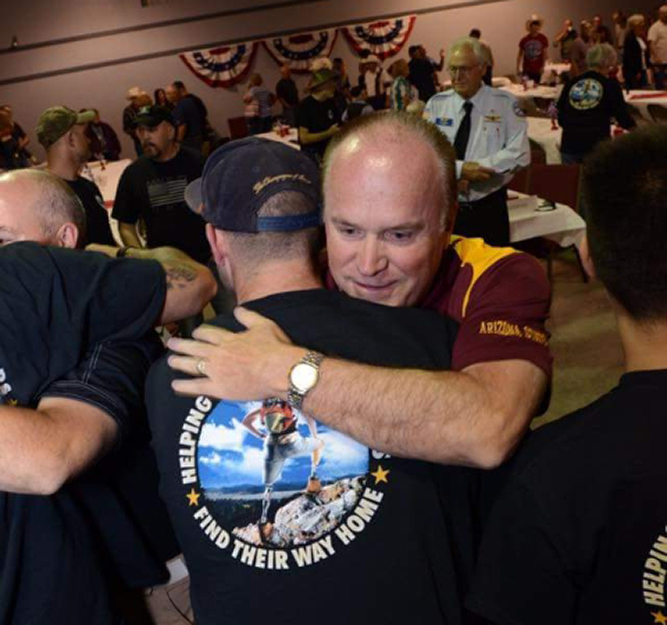Bryan Hoddle is not a track coach.
That label hasn’t accurately described him for quite some time.
Sure, he can correct and enhance your running form. He can show you the proper way to stretch before and after working out so you don’t injure yourself. He can even serve up some physical therapy to help with the inevitable bumps, bruises and soreness associated with running.
 He can do all that exceptionally well.
He can do all that exceptionally well.
But make no mistake, he is not a track coach.
Twice he has been the recipient of the PNW Track and Field Ken Foreman Contributor Award – first in 1997, then again in 2014. He was recognized as a Hero in Running by Runner’s World Magazine in 2013 and was honored by the Washington State Legislature in the House of Representatives two years ago for his work in the sport, as well as being one of just six Americans in 2014 to receive the USA Track and Field Presidential Award.
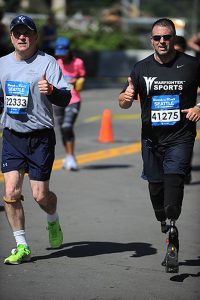
Everything on his resume screams running coach, and yes, Hoddle’s profession exists within that world.
However, Hoddle’s biggest commodity is hope.
Since 2004, Hoddle, a former coach and history teacher at Tenino High School and Chinook Middle School, has worked extensively with injured soldiers at the Walter Reed Army Medical Center Hospital in Washington, DC as well as Lakeshore Foundation in Birmingham, Alabama.
In addition, he has worked with Dave Roever’s Operation Warrior RECONnect for the past three years, helping America’s wounded veterans, many of whom are amputees or have suffered traumatic brain injuries, adjust back to life after enduring their hardships while serving their country.
Hoddle provides them with the gift of running. But it’s not as simple as that as he is equal parts trainer, friend and inspiration.
“I work a lot on injured soldiers’ balance, alignment, joint range of motion, and reprogramming muscles to fire sequentially, as they are supposed to,” said Hoddle, a North Thurston High School graduate who captured a state championship in the 400 as a senior in 1977. “But for me it’s much more than teaching them movement patterns or how to run or walk. It’s building relationships and letting them know I care about them as people.”
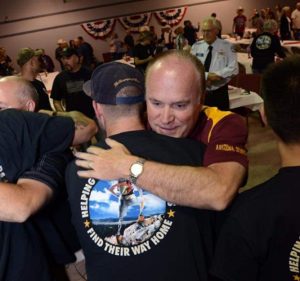
The training doesn’t end, however, once they leave the track. See, Hoddle makes himself available to his athletes anytime, day or night, via phone or text – a remarkable feat after you break down the number of veterans Hoddle has trained.
At his best estimate, Hoddle believes the number is in the ballpark of approximately 1,200 soldiers, earning him the moniker of the “Soldier’s Coach.”
It’s an astounding figure, but if you were to quiz Hoddle about each and every individual he has worked with, odds are he would likely be able to talk in detail about each of them.
It’s the compassion which elevates Hoddle from being just a coach.
Flashback a dozen years ago when Hoddle made his first trip to the Walter Reed National Military Medical Center. He was simply there to conduct a running clinic with a group of wounded veterans.
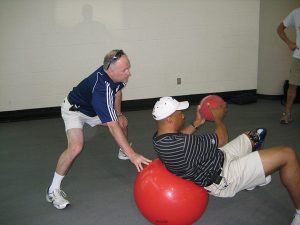
Hoddle was more than prepared for the presentation. After all, he had already spoken to about 200 groups over the past two decades on the subject of running. He knew his stuff. This would be easy.
Except it wasn’t. This wasn’t the audience he was accustomed to.
“When I walked into the room the first thing I saw was a 19-year-old soldier with a helmet on his head, stacking blocks, and another was in a wheelchair had shrapnel wounds all over his face, missing an arm, missing a leg, who was just staring at me,” Hoddle remembered. “I left, went into the bathroom, and cried. At that moment, I realized God hadn’t sent me to Walter Reed to do a running clinic, but to give these people hope.”
Since that presentation, it was been non-stop for Hoddle as he makes himself available to work with as many veterans as possible.
A little over a year ago, he retired from teaching and moved to Chandler, Arizona.
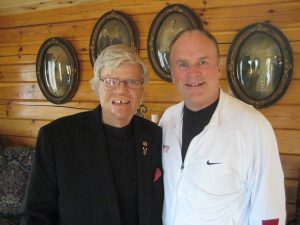
Of course, his current residency sits vacant a large portion of the time while he makes frequent trips around the nation to help those in need.
Hoddle began working with disabled athletes nearly a decade before getting involved with veterans. He conditioned Tony Volpentest, who was born without hands and feet, to a world record at the 1996 Paralympic Games in Atlanta.
Up next was Marlon Shirley, a triple world record holder who holds the distinction as “world’s fastest amputee.” Hoddle coached Shirley to titles at the 2000 and 2004 Paralympics – the latter of which was held in Athens, Greece where Hoddle was head coach for the USA Paralympics Track and Field Team, leading the squad to 26 gold medals.
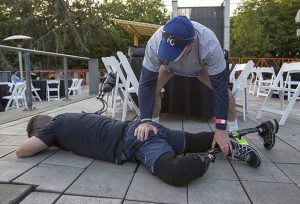
He has parlayed his success there to his current work, and while most of his athletes will never capture gold, all are viewed, treated and trained like champions by Hoddle.
“I want these guys—who have lost so much—to begin to think, ‘I can do this,’” Hoddle said. “When an injured soldier says you gave them hope, that’s the equivalent of watching the American flag go up at the Paralympics and the national anthem being played.”
No, Hoddle isn’t a track coach. He’s something much more.







































